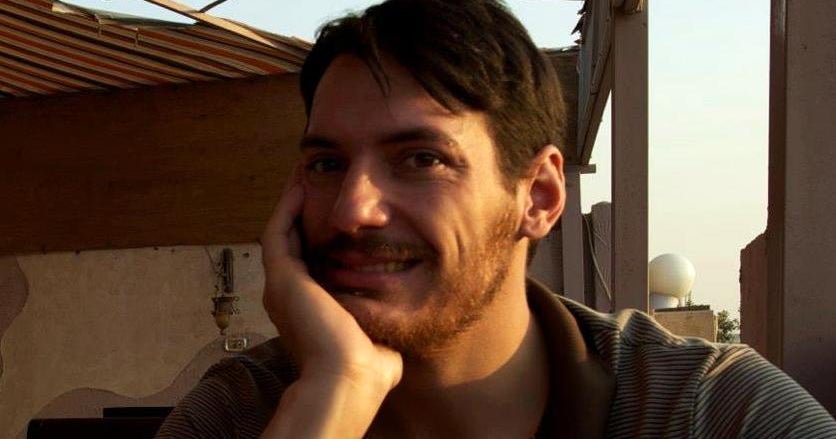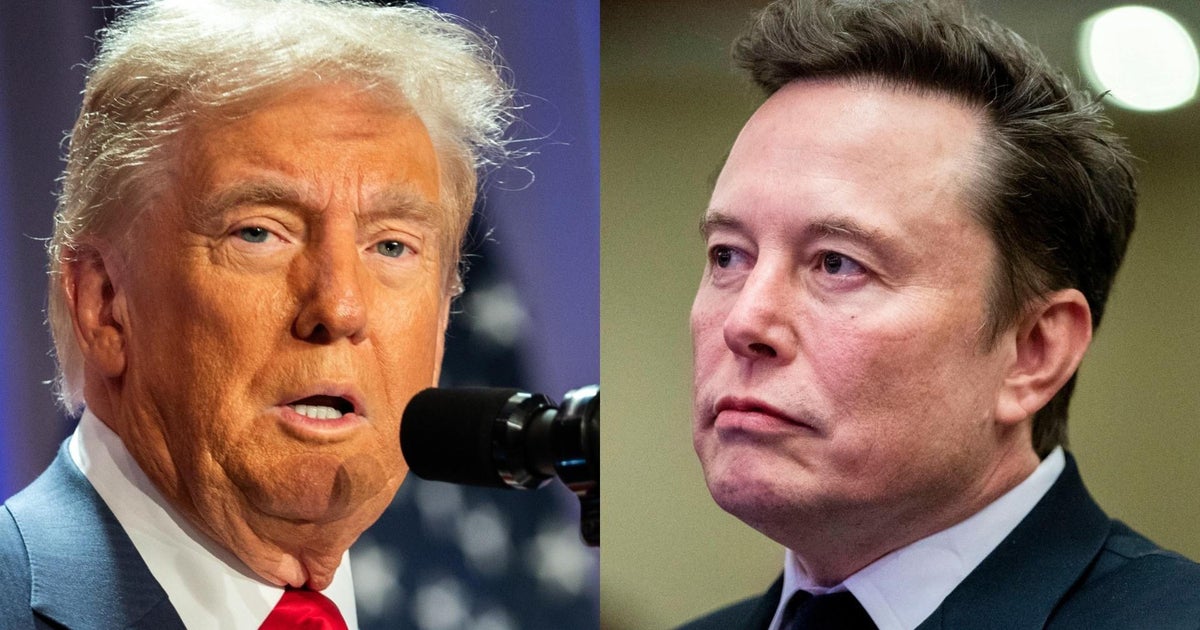CBS News
Trump campaign’s use of Leonard Cohen’s “Hallelujah” is “blasphemy,” singer Rufus Wainwright says

On Monday, Donald Trump turned a town hall Q&A into a music-listening session, with the former president swaying on stage for more than 30 minutes to some of his favorite songs — including Leonard Cohen’s “Hallelujah,” as covered by the singer Rufus Wainwright in the film “Shrek.”
Now, Wainwright and Cohen’s estate are taking issue with Trump’s use of the song, with Wainwright writing on social media that “witnessing Trump and his supporters commune with this music last night was the height of blasphemy.”
The publishing company for Cohen’s estate has sent a cease and desist letter to the Trump campaign, Wainwright said. Cohen, who died in 2016 at the age of 82, originally released the song in 1984, with many musicians later covering it, including Wainwright and the late Jeff Buckley.
The Trump campaign and representatives for Wainwright and Cohen’s estate didn’t immediately respond to requests for comment.
The spat over “Hallelujah” marks the latest tussle between musicians and the Trump campaign, which has repeatedly been asked to stop playing songs by artists ranging from Celine Dion to Queen. Some of the artists said they are opposed to their music accompanying any type of political event, while others, like Wainwright, have been more pointed in linking their music to Trump.
“The song ‘Hallelujah’ by Leonard Cohen has become an anthem dedicated to peace, love and acceptance of the truth,” Wainwright wrote on Tuesday.
He added that he was “mortified” that the song was played at the Trump event, adding that “the good in me hopes that perhaps in inhabiting and really listening to the lyrics of Cohen’s masterpiece, Donald Trump just might experience a hint of remorse over what he’s caused.”
Wainwright added that he is supporting Vice President Kamala Harris in the presidential election.
Trump played several other recordings at the town hall event in Oaks, Pennsylvania, about 20 miles outside Philadelphia, after two attendees needed medical attention. Those songs included “It’s A Man’s Man’s Man’s World” by James Brown, “An American Trilogy” by Elvis Presley and “Nothing Compares 2 U,” by the late Sinead O’Connor.
Musicians who have objected to Trump using their music
Wainwright joins a long list of other musicians who have asked the Trump campaign to stop using their songs. Some of the recent cases include:
- Celine Dion, whose representatives in August told Trump that his use of her 1990s song “My Heart Will Go On” was “unauthorized” and had not received her permission.
- The Foo Fighters, who in August objected to Trump playing the band’s “My Hero” when he welcomed former independent candidate Robert F. Kennedy Jr. to the stage at an Arizona rally. The Foo Fighters said they hadn’t given permission for the use of the song, and that any royalties received as a result of the Trump campaign’s use of the song would be donated to Harris’ campaign.
- Isaac Hayes, with a federal judge in Atlanta ruling last month that Trump and his campaign must stop using the song “Hold On, I’m Coming” while the family of one of the song’s co-writers pursues a lawsuit against the former president over its use.
- The White Stripes, who in September sued Trump in a case that alleges he used their hit song “Seven Nation Army” without permission in a video posted to social media.
CBS News
Biden’s top hostage envoy Roger Carstens in Syria to ask for help in finding Austin Tice

Roger Carstens, the Biden administration’s top official for freeing Americans held overseas, on Friday arrived in Damascus, Syria, for a high-risk mission: making the first known face-to-face contact with the caretaker government and asking for help finding missing American journalist Austin Tice.
Tice was kidnapped in Syria 12 years ago during the civil war and brutal reign of now-deposed Syrian dictator Bashar al-Assad. For years, U.S. officials have said they do not know with certainty whether Tice is still alive, where he is being held or by whom.
The State Department’s top diplomat for the Middle East, Barbara Leaf, assistant secretary of state for Near Eastern Affairs, accompanied Carstens to Damascus as a gesture of broader outreach to Hay’at Tahrir al-Sham, known as HTS, the rebel group that recently overthrew Assad’s regime and is emerging as a leading power.
Near East Senior Adviser Daniel Rubinstein was also with the delegation. They are the first American diplomats to visit Damascus in over a decade, according to a State Department spokesperson.
They plan to meet with HTS representatives to discuss transition principles endorsed by the U.S. and regional partners in Aqaba, Jordan, the spokesperson said. Secretary of State Antony Blinken traveled to Aqaba last week to meet with Middle East leaders and discuss the situation in Syria.
While finding and freeing Tice and other American citizens who disappeared under the Assad regime is the ultimate goal, U.S. officials are downplaying expectations of a breakthrough on this trip. Multiple sources told CBS News that Carstens and Leaf’s intent is to convey U.S. interests to senior HTS leaders, and learn anything they can about Tice.
Rubinstein will lead the U.S. diplomacy in Syria, engaging directly with the Syrian people and key parties in Syria, the State Department spokesperson added.
Diplomatic outreach to HTS comes in a volatile, war-torn region at an uncertain moment. Two sources even compared the potential danger to the expeditionary diplomacy practiced by the late U.S. Ambassador Christopher Stevens, who led outreach to rebels in Benghazi, Libya, in 2012 and was killed in a terrorist attack on a U.S. diplomatic compound and intelligence post.
U.S. special operations forces known as JSOC provided security for the delegation as they traveled by vehicle across the Jordanian border and on the road to Damascus. The convoy was given assurances by HTS that it would be granted safe passage while in Syria, but there remains a threat of attacks by other terrorist groups, including ISIS.
CBS News withheld publication of this story for security concerns at the State Department’s request.
Sending high-level American diplomats to Damascus represents a significant step in reopening U.S.-Syria relations following the fall of the Assad regime less than two weeks ago. Operations at the U.S. embassy in Damascus have been suspended since 2012, shortly after the Assad regime brutally repressed an uprising that became a 14-year civil war and spawned 13 million Syrians to flee the country in one of the largest humanitarian disasters in the world.
The U.S. formally designated HTS, which had ties to al Qaeda, as a foreign terrorist organization in 2018. Its leader, Mohammed al Jolani, was designated as a terrorist by the US in 2013 and prior to that served time in a US prison in Iraq.
Since toppling Assad, HTS has publicly signaled interest in a new more moderate trajectory. Al Jolani even shed his nom de guerre and now uses his legal name, Ahmed al-Sharaa.
U.S. sanctions on HTS linked to those terrorist designations complicate outreach somewhat, but they haven’t prevented American officials from making direct contact with HTS at the direction of President Biden. Blinken recently confirmed that U.S. officials were in touch with HTS representatives prior to Carstens and Leaf’s visit.
“We’ve heard positive statements coming from Mr. Jolani, the leader of HTS,” Blinken told Bloomberg News on Thursday. “But what everyone is focused on is what’s actually happening on the ground, what are they doing? Are they working to build a transition in Syria that brings everyone in?”
In that same interview, Blinken also seemed to dangle the possibility that the U.S. could help lift sanctions on HTS and its leader imposed by the United Nations, if HTS builds what he called an inclusive nonsectarian government and eventually holds elections. The Biden administration is not expected to lift the U.S. terrorist designation before the end of the president’s term on January 20th.
Pentagon spokesperson Pat Ryder disclosed Thursday that the U.S. currently has approximately 2,000 US troops inside of Syria as part of the mission to defeat ISIS, a far higher number than the 900 troops the Biden administration had previously acknowledged. There are at least five U.S. military bases in the north and south of the country.
The Biden administration is concerned that thousands of ISIS prisoners held at a camp known as al-Hol could be freed. It is currently guarded by the Syrian Democratic forces, Kurdish allies of the U.S. who are wary of the newly-powerful HTS. The situation on the ground is rapidly changing since Russia and Iran withdrew military support from the Assad regime, which has reset the balance of power. Turkey, which has been a sometimes problematic U.S. ally, has been a conduit to HTS and is emerging as a power broker.
A high-risk mission like this is unusual for the typically risk averse Biden administration, which has exercised consistently restrained diplomacy. Blinken approved Carstens and Leaf’s trip and relevant congressional leaders were briefed on it days ago.
“I think it’s important to have direct communication, it’s important to speak as clearly as possible, to listen, to make sure that we understand as best we can where they’re going and where they want to go,” Blinken said Thursday.
At a news conference in Moscow Thursday, Russian President Vladimir Putin said he had not yet met with Assad, who fled to Russia when his regime fell earlier this month. Putin added that he would ask Assad about Austin Tice when they do meet.
Tice, a Marine Corps veteran, worked for multiple news organizations including CBS News.
CBS News
12/19: CBS Evening News – CBS News

Watch CBS News
Be the first to know
Get browser notifications for breaking news, live events, and exclusive reporting.
CBS News
Delivering Tomorrow: talabat’s Evolution in the Middle East

Watch CBS News
Be the first to know
Get browser notifications for breaking news, live events, and exclusive reporting.








